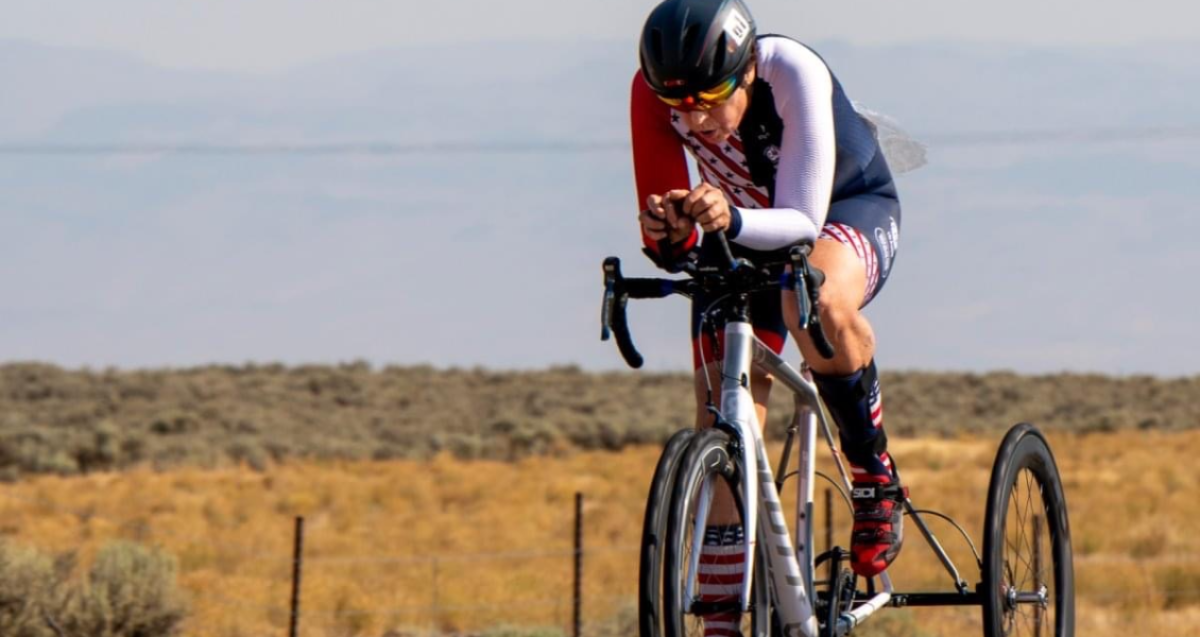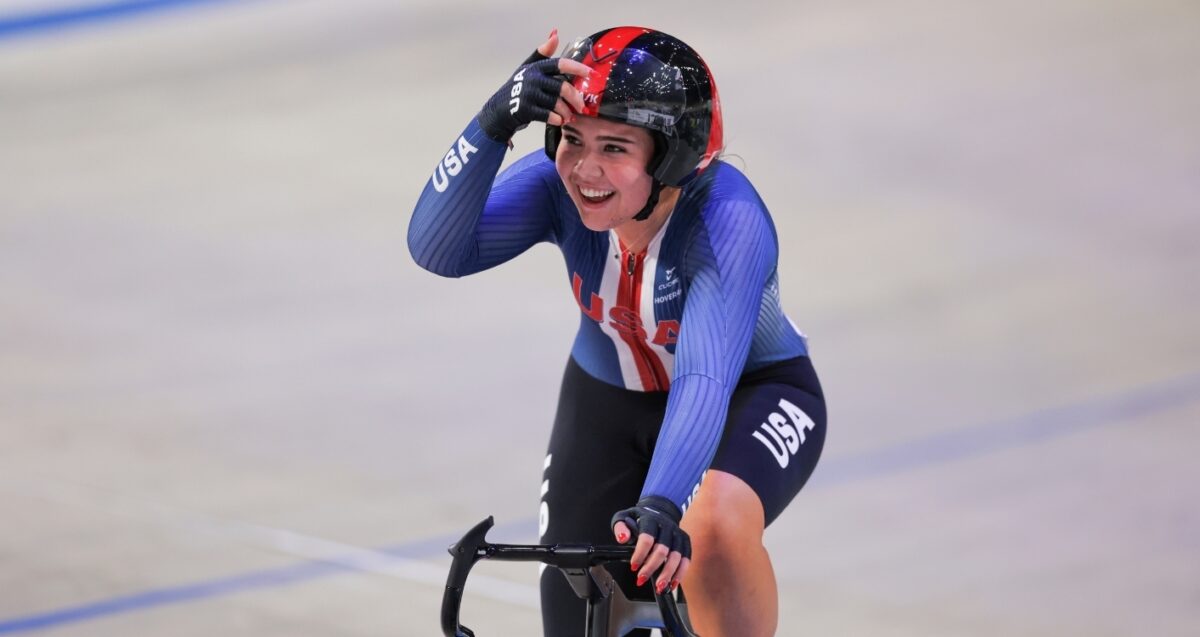There was only one way for Ellie Kennedy to make the U.S. roster for the 2025 UCI Para-cycling Road World Championships.
She would have to make an appearance on the podium in Maniago, Italy, the second of two road world cup stops this past May. There was no other way to make it to the big show Aug. 28-31 in Ronse, Belgium.
Well, check that box.
Racing as an independent, Kennedy, a WT2 rider, earned a bronze medal in the road race at Maniago, securing her spot as one of nine women to make the U.S. team and the only tricyclist.
Her immediate reaction, especially after a pair of frustrating fifth-place finishes at the first world cup May 1-4 in Ostend, Belgium?
“I was done with race, in my rental van,” Kennedy said. “I basically cried for 20 minutes.
“In racing, anything can happen. You have to work hard, but you have to be lucky. In Belgium, I was basically blocked. I think in Italy, everything went my way.”
It sure did. Her coach, Mark Sortino, agreed.
“Not totally surprised, but just sheer gratitude for her to experience the result that I know she could do in overcoming all obstacles,” Sortino said. “I think it’s years in the making of making mistakes at the wrong time and learning from them.”
Kennedy, now 68, battles cerebellar ataxia, a group of neurological disorders, which more than likely was caused by sarin gas exposure during her tour of duty in the U.S. Army in the Persian Gulf War. For the first 20 to 30 minutes of a race, everything is typically fine. But after that?
“On the first lap (in Maniago), I looked great, but by the fourth lap I was holding on and going as fast I can possibly go,” she said. “I guess I looked like a drunk cyclist. And when I stopped, I could hardly get off the bike.”
Her condition affects the cerebellum, which is the part of the brain that coordinates movement and balance. It doesn’t cause dizziness, she said, though she does get nauseous.
In 2019, Kennedy was using a wheelchair and doctors told her the prognosis wasn’t good.
But Kennedy made some important changes in her life, “and something switched with me.” In a good way.
Riding a tricycle isn’t exactly easy, either, which makes her accomplishment that much sweeter.
“We’re not very aerodynamic, and if you have a balance issue, it’s hard to get low for a long time,” Kennedy said. “When you take corners, you have to be careful, otherwise you’ll tip over.”
Kennedy who previously lived in Boise, Idaho, now resides in balmy Tucson, Arizona. She’s typically up by 4 a.m. and out the door within the hour to train to avoid the worst of the heat. Because of her cerebellar ataxia, she also can’t ride for hours at a crack, usually limiting her training to one or two hours at the most. Higher intensity workouts are done indoors.
Usually by 9 a.m., she’s done and can enjoy the rest of her day. But racing is more than physical for her.
It’s the mental game, too, and just as big a challenge.
“You have to do a lot of visualization,” she said. “I typically ride a course many times before I ride the race. I want to know every nook and cranny of the course. It just really helps me.”
But in Maniago, Kennedy couldn’t do that, because part of the course was on a major road and she doesn’t go there unless someone is assisting her.
Her workaround was to drive her rental van many times prior to the race. It wasn’t ideal, but it worked.
“As far as the mental thing, it’s the preparation, making sure everything is squared up, so when race day comes, you’re ready,” she said. “(It’s) just trying to relax and remember, number one, I’m going to be safe. If I crash, I won’t be in the running.”
Sortino said her mental game is on point, which should help her in Ronse.
“Mentally, she’s committed and dedicated and has that sort of tenacious mindset that keeps her going no matter obstacle is in front of her,” he said. “She keeps going. She’s highly driven like a lot of successful athletes at this level.”
For riders who are new to Para-cycling, Kennedy has a few words of advice about starting out and sticking with it.
One is to ask a ton of questions. Use internet search engines to learn as much as you can and find the right people, like Sortino, who can provide astute counsel.
The second is as easy as it is challenging: Have fun.
“It’s not always going to be fun, that’s the truth,” she said. “Just keep at it. Do whatever it takes to be as healthy as you can be.”
Gregg Voss is a journalist based in the Chicago suburbs who has been writing sports for newspapers and magazines for more than 20 years. He is a freelance contributor to USParaCycling.org on behalf of Red Line Editorial, Inc.

